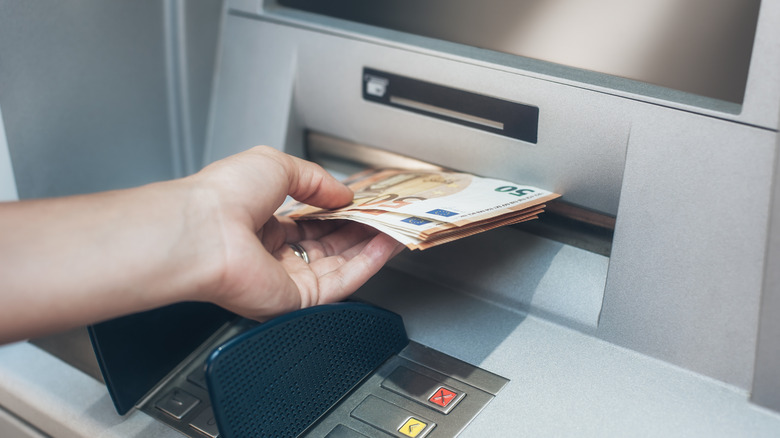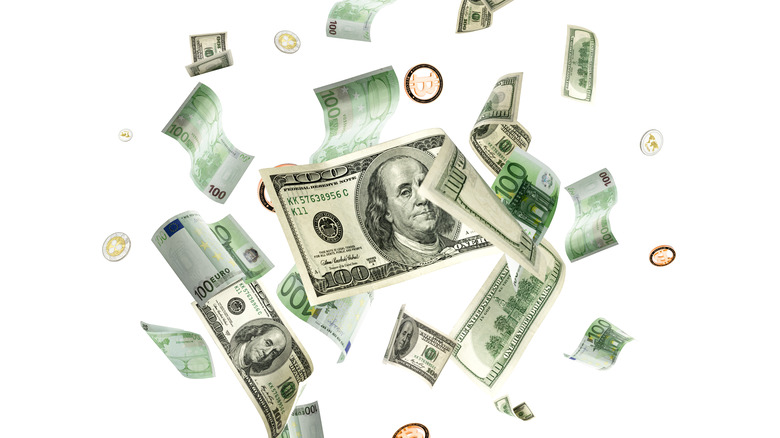Money Carries More Germs Than You Think
Most people today pay their bills and do their shopping with their debit or credit cards. And, more often than not, the cards are run through a machine, so it is only ever touched by the cardholder. It's a convenient system that is both fast and easy, cutting out the need to count change and sort money back into our wallets after a transaction.
But this one-sided payment system also cuts out another aspect of money handling that many people may be unaware of. Skipping cash transactions means that shoppers are no longer exposed to the various substances that contaminate most money, including DNA from both humans and their pets, traces of food, and even remnants of illicit drugs. One 2017 study found that money carries a wide range of bacteria and may actually serve as one way that disease can spread from person to person.
Money is filthy
A few years before the 2017 study, another group of researchers looked at the bacteria on money and its potential to spread disease through populations. Their findings were published in a 2014 issue of "Future Microbiology". They found that in addition to a variety of substances, money is often contaminated with several dangerous bacterial strains including staphylococcus aureus, E. coli, and several forms of salmonella. ANd, sadly, cash exchange can in fact spread the bacteria from person to person.
The report was issued long before the age of COVID-19, but FEMA has addressed the role of cash in the spread of the virus. COVID-19 cannot be absorbed through the skin and FEMA states there is no conclusive evidence that cash can transmit the disease. There are, however, contact-free and low-contact options that the organization lists as best practices to reduce any potential contamination. And, given what lurks on physical money, these practices might be useful outside of pandemic situations.
FEMA references the emerging drive-thru practice of limiting cash handling to one person so hands that touch money do not also touch food. Other practices include an increased emphasis on hand-washing, particularly after touching money, and the increased use of masks so germs and the COVID-19 virus cannot be exhaled onto money. None of the practices are foolproof, and even FEMA suggests a continued focus on contact-free payment options. But these practices can reduce the spread of germs and disease, cutting off some infections before they start.

